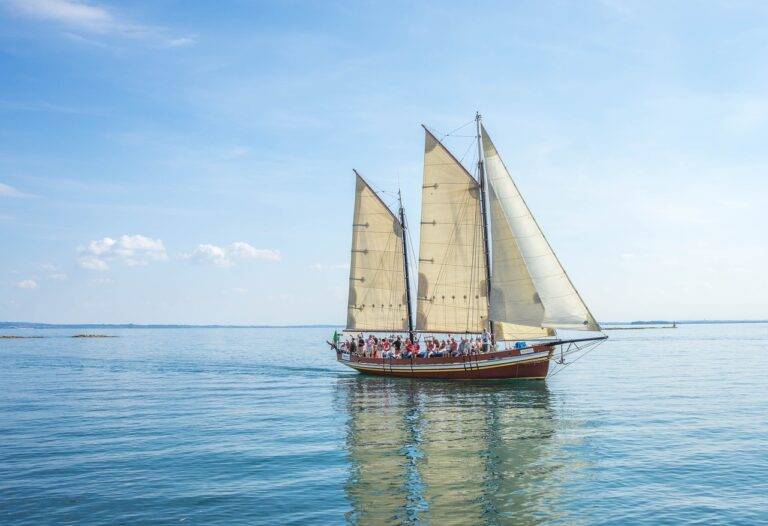Indigenous Tourism Experiences: Supporting and Learning from Indigenous Communities Around the World
12Bet, Betstarexchange: Indigenous tourism plays a crucial role in preserving and showcasing the rich cultural heritage of indigenous communities. By supporting indigenous tourism, travelers have the opportunity to engage with authentic cultural practices, traditions, and stories passed down through generations. This not only fosters a sense of appreciation and understanding for diverse cultures but also helps to combat stereotypes and misconceptions that often exist about indigenous peoples.
Furthermore, supporting indigenous tourism contributes to the economic empowerment of indigenous communities. By participating in indigenous tourism activities such as guided tours, cultural workshops, and purchasing locally made handicrafts, travelers directly support the livelihoods of indigenous artisans, guides, and small businesses. This sustainable form of tourism helps to create jobs, generate income, and improve the overall quality of life for indigenous communities, thereby promoting self-reliance and resilience in the face of economic challenges.
Understanding the Importance of Cultural Preservation
Cultural preservation is essential for maintaining the unique traditions and customs that have been passed down through generations within Indigenous communities. These cultural practices serve as a link to the past, connecting individuals to their ancestors and providing a sense of identity and belonging. By preserving their cultural heritage, Indigenous peoples are able to uphold their distinct ways of life and ensure that future generations can continue to learn and appreciate their rich history.
Furthermore, cultural preservation plays a crucial role in promoting understanding and respect among different societies. When Indigenous traditions are preserved and shared through tourism, it facilitates cultural exchange and fosters meaningful interactions between visitors and the local communities. This not only helps to break down stereotypes and misconceptions but also promotes cross-cultural appreciation and acceptance. Overall, cultural preservation through Indigenous tourism serves as a powerful tool for promoting diversity, preserving heritage, and fostering intercultural dialogue.
Cultural preservation maintains unique traditions and customs passed down through generations within Indigenous communities
Connects individuals to their ancestors, providing a sense of identity and belonging
Upholds distinct ways of life for Indigenous peoples
Ensures future generations can learn and appreciate rich history
Promotes understanding and respect among different societies
Facilitates cultural exchange through tourism
Fosters meaningful interactions between visitors and local communities
Breaks down stereotypes and misconceptions
Promotes cross-cultural appreciation and acceptance
Serves as a powerful tool for promoting diversity, preserving heritage, and fostering intercultural dialogue
The Impact of Indigenous Tourism on Local Economies
Indigenous tourism plays a significant role in boosting local economies by providing opportunities for indigenous communities to showcase their unique cultural traditions and practices. Through tourism, these communities can generate income through activities such as guided tours, cultural performances, and selling traditional handicrafts and products. This influx of revenue not only benefits individuals within the community but also contributes to the overall prosperity of the local economy.
Furthermore, indigenous tourism helps to create employment opportunities for community members, reducing dependency on government subsidies and fostering self-sufficiency. By engaging in various tourism-related enterprises, indigenous people can develop skills, gain valuable work experience, and become actively involved in the economic growth of their communities. This empowerment through economic participation not only improves the standard of living for individuals but also contributes to the overall economic development of the region.
What are some key reasons for supporting Indigenous tourism?
Some key reasons for supporting Indigenous tourism include promoting cultural exchange, preserving traditional practices and knowledge, empowering Indigenous communities economically, and fostering mutual respect and understanding.
Why is understanding the importance of cultural preservation crucial in Indigenous tourism?
Understanding the importance of cultural preservation is crucial in Indigenous tourism because it helps sustain the unique cultural identities of Indigenous communities, ensures the protection of traditional knowledge and practices, and maintains the authenticity of Indigenous tourism experiences.
How does Indigenous tourism impact local economies?
Indigenous tourism can have a significant positive impact on local economies by creating employment opportunities for Indigenous people, generating income through tourism activities and services, attracting visitors to support local businesses, and contributing to the overall economic development of Indigenous communities.





